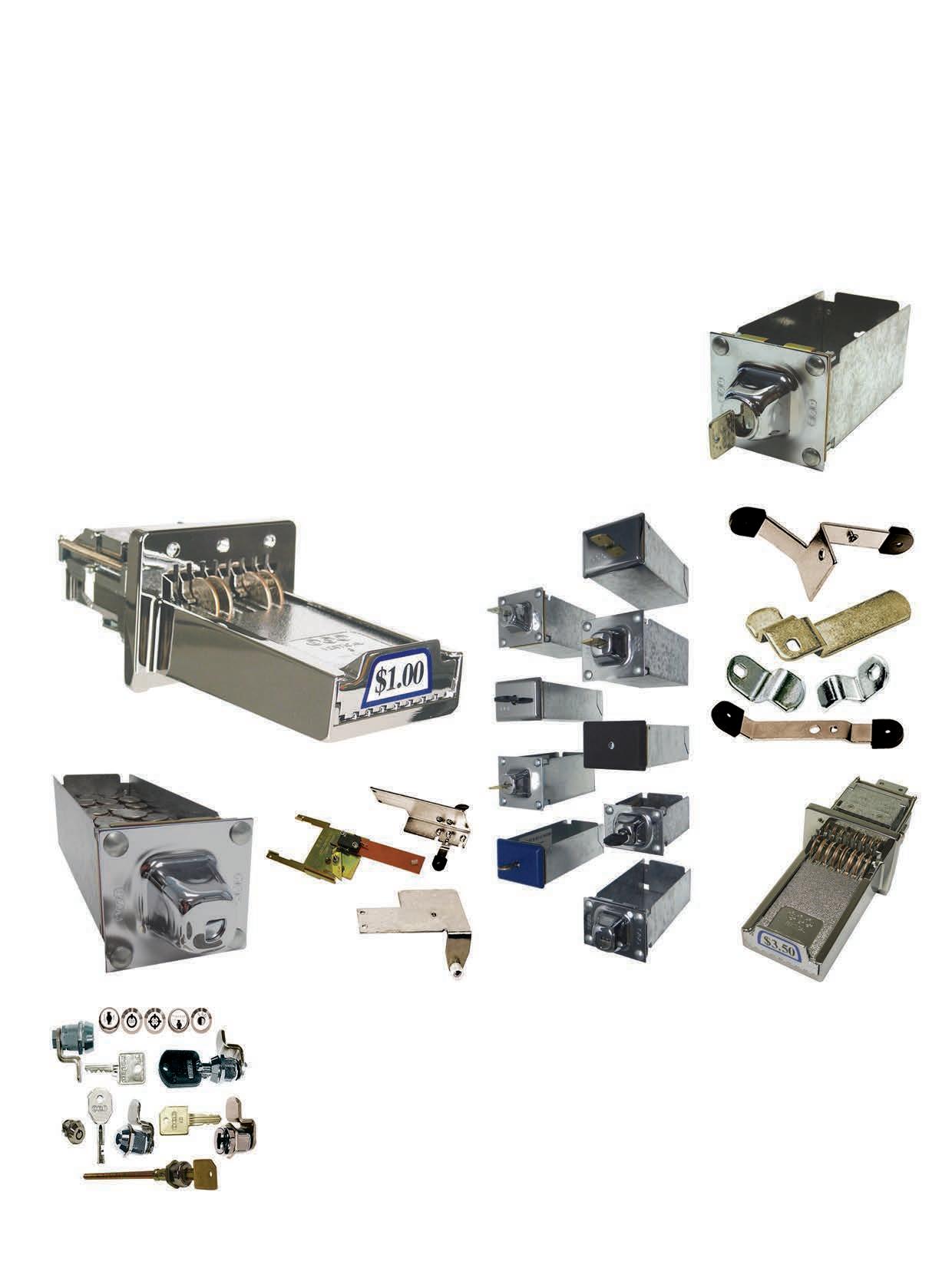







































































MANAGING THE ‘WORLD’ FROM OUT OF STATE
BAHAMIAN FACT-FINDING VACATION
10 THINGS YOUR LAWYER MAY NOT TELL YOU
THE VITALITY OF VENDING























































































































Every coin laundry owner, including you, has to deal with acquiring replacement parts for washers, dryers and other equipment that falters or fails. Do you have any spare parts on hand?
For our cover story this month, I interviewed representatives of equipment distributors and suppliers to learn more about the parts business. It’s likely there is a list of suggested spare parts to keep on hand for the equipment you own. My story starts on page 8.
Barry and Holly Monroe own several Laundromats but only one outside their home state of South Carolina. They rely on their staff and on advanced technology to enable them to run their Wash World operation in Charlotte, N.C.
Take a trip with writer Hannah Miller to the 3,600-square-foot “superstore” sandwiched between a meat market/grocery and a restaurant. The tour starts on page 18.
Snacks, beverages, laundry detergents, small toys and trinkets, and even video games have been at the disposal of waiting laundry customers for years, writes Editorial Assistant Carlo Calma. But as the times and technology have changed, so, too, have customers’ vending needs.
Calma interviewed representatives of the National Automatic Merchandising Association as well as two major vending equipment manufacturers to learn about the state of the industry and to identify the changes and challenges that it faces. He dispenses his report beginning on page 22.
Of course, there’s much more quality content for you this month. And if you’re reading this in our Digital Edition, watch for the microphone icon to access exclusive audio!
Bruce Beggs Editorial DirectorCharles Thompson, Publisher
E-mail: cthompson@ americantrademagazines.com Phone: 312-361-1680
Bruce Beggs, Editorial Director E-mail: bbeggs@ americantrademagazines.com Phone: 312-361-1683


Roger Napiwocki, Production Manager
Jean Teller, Contributing Editor
Carlo Calma, Editorial Assistant
Nathan Frerichs, Digital Media Director
E-mail: nfrerichs@ americantrademagazines.com Phone: 312-361-1681
Donald Feinstein, Natl. Sales Director
E-mail: dfeinstein@ americantrademagazines.com Phone: 312-361-1682
OFFICE INFORMATION
Main: 312-361-1700 Fax: 312-361-1685
SUBSCRIPTIONS
630-739-0900 x100 www.AmericanCoinOp.com
American Coin-Op (ISSN 0092-2811) is published monthly. Subscription prices, payment in advance: U.S., 1 year $39.00; 2 years $73.00. Foreign, 1 year $89.00; 2 years $166.00. Single copies $7.00 for U.S., $14.00 for all other countries. Published by American Trade Magazines LLC, 566 West Lake Street, Suite 420, Chicago, IL 60661. Periodicals postage paid at Chicago, IL and at additional mailing offices.
POSTMASTER, Send changes of address and form 3579 to American Coin-Op, Subscription Dept., 440 Quadrangle Drive, Suite E, Bolingbrook, IL 60440. Volume 55, number 6. Editorial, executive and advertising offices are at 566 West Lake Street, Suite 420, Chicago, IL 60661.
Charles Thompson, President and Publisher. American Coin-Op is distributed selectively to owners, operators and managers of chain and individually owned coin-operated laundry establishments in the United States. No material appearing in American Coin-Op may be reprinted without written permission. The publisher reserves the right to reject any advertising for any reason.
© Copyright AMERICAN TRADE MAGAZINES LLC, 2014. Printed in U.S.A.
Over all 41.62" W x 72" H x 38.5" D
* compressor unit needs 4" inches of "breather" room behind unit


The majority of Laundromat owners and operators (45.2%) polled in May’s American Coin-Op Your Views survey say they “market more than most operators.”

Equal shares of 19.4% say they either “market just as much” as other operators, or they “market less than most.” The remaining 16.1% confessed they “don’t market” at all.
Owners/operators were also asked to identify all the marketing tools they have used from a prepared list. Equal shares of 39.3% say they have utilized “free/reduced-price wash and/or dry,” and “other” marketing strategies, like door hangers and social media, while one says he/she has had the store’s ad displayed during previews at a local movie theater.
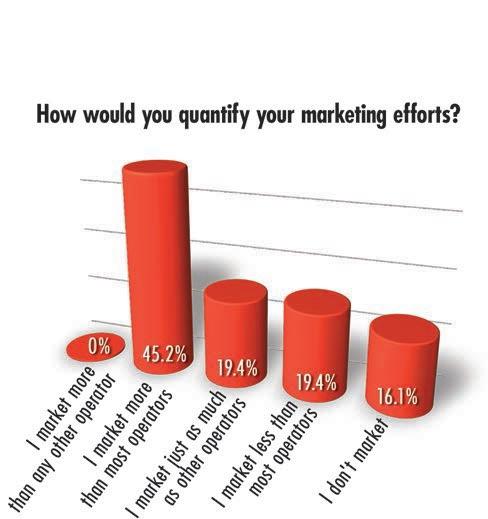
Equal shares of 35.7% say they use “loyalty programs” and “in-store giveaways”; 28.6% utilize direct mail; 21.4% use newsletters/brochures; 17.9% advertise with newspaper coupons; 10.7% buy TV/radio ads; and 3.6% do promotions through “holiday-related activities.”
In terms of which tactic has proven most successful, 36% of respondents say it’s a combination of “other” tools, like social media and advertising through the Yellow Pages, while 24% swear by “free/reduced-price wash and/or dry.” Sixteen percent can attest to the power of “in-store giveaways,” while 12% say “loyalty programs” work best.
Equal shares of 4% say newsletters/brochures, newspaper coupons, and direct mail have proven successful.
Using social media and the Internet to market is becoming more prevalent among Laundromat owners, as more than half (54.8%) say they use the mediums, while 19.4% say they do not. More than a quarter say they “plan to explore” the options.
Regardless of which marketing tool they use, a resounding 80.7% say “word-of-mouth” advertising is more important than any marketing efforts. A small percentage (3.2%) believe otherwise, while 16.1% say they are “not sure.”

Some respondents (26.7%) say “without a doubt” their marketing efforts have been worth the time and expense, while an identical share (26.7%) say that it wasn’t worth the investment, “with some exceptions.”
For 23.3%, their marketing efforts were worth the time and expense “with some exceptions.” A small percentage (3.3%) say “without a doubt” it was not worth the time and money. The remaining 20% say they are not sure.
American Coin-Op’s Your Views survey presents an unscientific snapshot of the audience’s viewpoints; due to rounding, percentages may not add up to 100%.
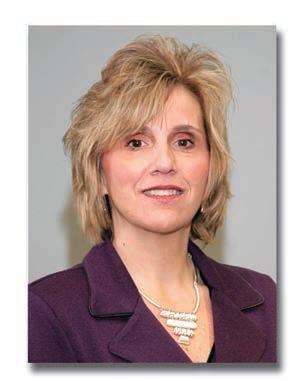
I’ve personally handled insurance for hundreds of coin laundries! I’ve already dealt with most any issue your business is likely to face. If you have any questions about insuring coin laundries, I can and will give you a prompt, clear answer. Skeptical? Call me with a question and find out for yourself.
There’s more: I’m just one member of a team of experts. NIE has been insuring fabricare business since 1915!
 Anne
Anne


For a coin laundry owner, it’s vitally important that each and every washer and dryer in their store is up and running—either in use or standing by for the next customer who carries a basket heaped with dirty clothes through the door.

But despite the robustness of today’s vended laundry equipment, there will be times, for whatever reason, that parts will falter or fail. It’s at times like those that a store owner either consults his/her stock of spare parts (more on that later) or reaches out to his/her equipment distributor or parts supplier of choice for the all-important component that’ll get a machine back in play.
American Coin-Op interviewed representatives from a handful of companies that make it their business to supply the parts you need.
Diana Anthony is director of parts for
Tri-State Technical Services, a Waycross, Ga., distributor that represents Maytag Commercial Laundry in several East Coast states. Her company maintains a large parts inventory in two of its divisions.

D. Michael Davis is president and owner of Nashville, Tenn.-based PartsKing, which he says was the first online resource for coin-op parts and supplies in the world. Since its inception in 1999, it’s grown to become one of the largest parts suppliers in the world, Davis says, carrying parts from every major vended equipment manufacturer.
Chris Mackay is director of advertising for Gold Coin Laundry Equipment, Jamaica, N.Y. Before being promoted to that post, he ran Gold Coin’s parts department for roughly a decade. Gold Coin is a Dexter Laundry distributor, selling and servicing Dexter equipment in the five New York City boroughs and parts of New Jersey.
Andy Marcionetti is owner of Laundry Concepts, an Addison, Ill., equipment dis-

tributor whose main focus is construction of new Laundromats in the Chicagoland area, and thus maintains a full-service parts department that sells replacement parts for all brands.
Belts, hoses, lint screens, dryer rollers and the “wearable” components that customers come into contact with—door handles, coin drops, etc.—are among the parts that store owners are replacing most frequently, the experts say.
Meanwhile, water valves, drain valves and computer boards are among the more intricate parts that they see most frequently in customer orders.


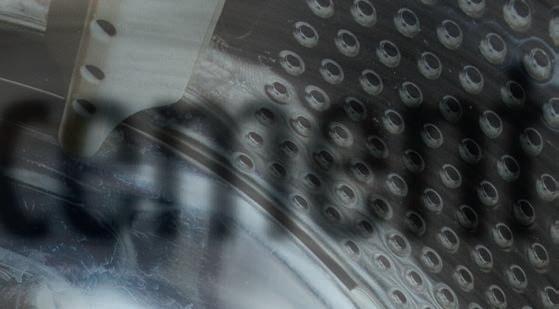





It’s not unusual for store owners to purchase belts and hoses from sources other than authorized laundry equipment distributors, Anthony says.
When a part goes down, a store owner needs its replacement immediately to get a machine back up as quickly as possible.
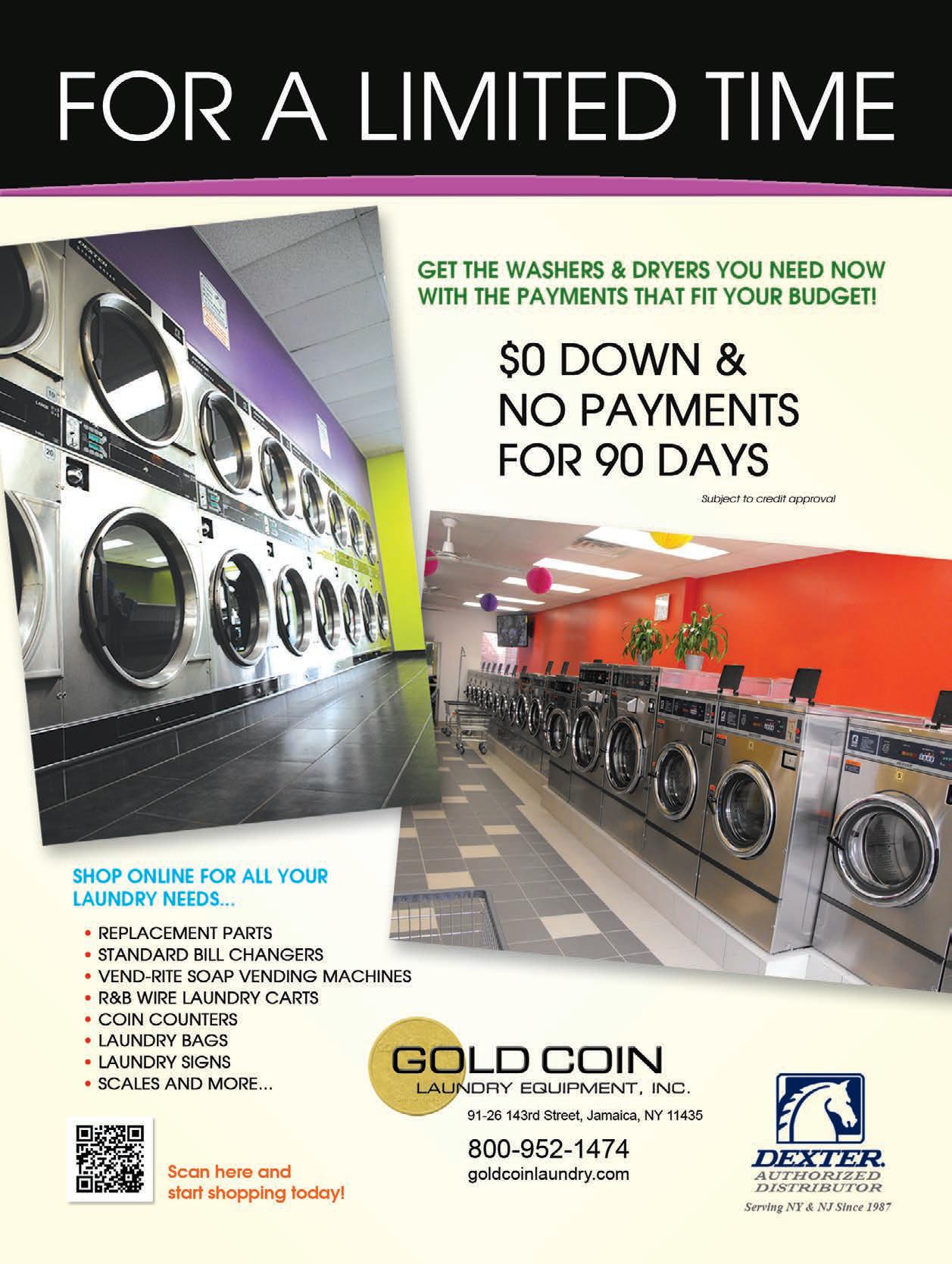
There’s no time to waste when it comes to ordering and delivering parts.
“We have customers throughout the country,” Mackay says. “But for our customers here in New York, we have a parts department that’s open five days a week, 8:30 to 5, so most of the parts they would be in need of, they could come directly to our parts department and pick it up that same day. If it’s not something that we do stock, we have the ability, with the manufacturer, to have that part here the next day if necessary.”
“We’re centrally located here in the middle of the country,” Davis says, “so we can ship anywhere in the country, any direction, real quickly. We ship worldwide as well. We’re not just a domestic company. We ship internationally.”
“Our goal at Tri-State is to place the order, or ship, the same day the order is received,” Anthony says. “We try to do it immediately. By the end of the day, all of our parts people have processed every order that they’ve taken, either placing with the vendor or drop-shipping from our inventory.”
“We have 90% of the wearable parts on hand at all times,” says Marcionetti, whose firm specializes in Alliance brand parts. “Manufacturers are constantly making upgrades to models, and obviously the parts are not interchangeable. The list of parts grows.”

So that they can keep the right parts in stock, it’s important that distributors and parts suppliers stay in touch with the equipment manufacturers.
“It’s a daily thing,” Mackay says. “We’re constantly back and forth with the manufacturer for parts orders we’re waiting on or parts we’ll need in the future. … There are meetings that are scheduled frequently with our area sales representative. At that meeting, they’ll discuss what’s going to be available, what’s up and coming … or even the parts that will no longer be available.”
“It depends on the manufacturer, but the larger manufacturers we communicate with on a daily basis,” Davis says. “Generally, it’s a lot of e-mails and a lot of phone calls going back and forth to make sure we have

the correct parts for the correct machines. Even though the model number may not change, some of the parts might have changed.”
“We work with the vendors, particularly when new equipment comes out, to figure out what should be stocked, what is going to be a fast-moving item,” Anthony says. “We, like most vendors, try to carry the fast movers in hand. In other words, water valves, drain valves, a few computer boards. There are so many different models of equipment, you can’t stock everything.”
Well-maintained equipment can, in some cases, remain operational for decades. Many times, when a washer or dryer model has been discontinued, suppliers must continue stocking parts for years thereafter.


“Manufacturers, I think, are required to keep parts seven years,” Davis says. “We’ll keep them as long as the manufacturers have them available. We generally keep our inventory many years after a product is obsolete.”
“The ability of us maintaining that inventory falls back to the vendors and how long they are going to supply those parts,” Anthony says.
“I had a customer earlier today call me, and he has a (model) WCA20 which has to be 20-25 years old, and he was replacing the bearings and seals,” Mackay says. “We had it in stock, and I was able to get it for him. … It really depends on the model. Not every part is available.”
A store owner can keep a finger on the pulse of his/her equipment by keeping track of parts purchases. Major suppliers







maintain sophisticated online systems that can be used to easily review a customer’s order history.
“We recommend it—the date the part was changed, what machine it was changed on— because that could help our service staff,” Mackay says. “If this is an ongoing problem and this machine has been constantly changing ignition modules, why is that? Then you would have to look further into why it’s doing it.”
“It helps them make sure, when they have to buy that part again for another machine, instead of having to go through the whole process of deciding which part number it is exactly,” Davis says. “Also, obviously, for their tax records, they need that [information] for their accountant at the end of the year.”
“I think it is important, definitely, to keep track of what you spend on parts, because that could be an indicator of when it might be time for you to buy new equipment,” says Marcionetti. “Gauge how much you’re spending on parts and service in comparison to what a new machine might cost you.”
It’s not unusual for manufacturers to provide lists of recommended spare parts in the installation and maintenance manuals accompanying new equipment, and distributors also keep lists of stocking parts on hand for their customers.
Water valves, water valve repair kits, door gaskets and belts are among the most commonly changed parts that Tri-State recommends its customers purchase and keep on hand, but it doesn’t always happen, according to Anthony. “Very few coin stores stock a lot of parts. It’s kind of a ‘buy as needed’ industry.”
“A small inventory of parts would not hurt,” Mackay says. “You really don’t want a machine down on your busiest days.”
“There are certainly some store owners who do not stock anything,” Marcionetti says. “At the worst time, things happen, usually Friday afternoon. A belt will break on your big machine and you won’t have one. Not having at least the minimum amount of stock of wearable parts would be a mistake.”
“There are certainly some store owners who do not stock anything. ... Not having at least the minimum amount of stock of wearable parts would be a mistake.”
— Andy Marcionetti, Laundry Concepts

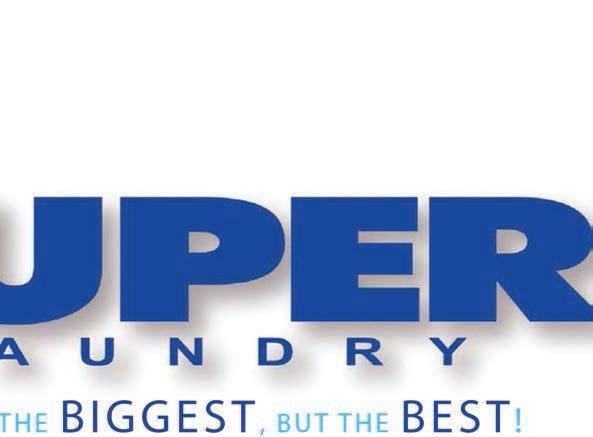
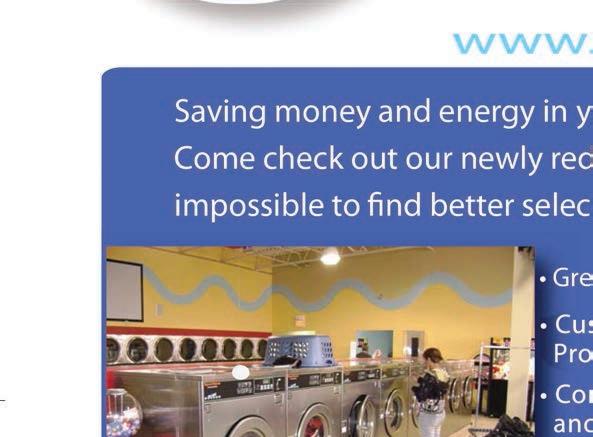






A store’s vended laundry equipment could have all of the bells and whistles, but if not properly maintained, its benefits will fall silent. For owners looking to exceed customer expectations, reduce utility costs and avoid bigger maintenance issues, adhering to a preventative maintenance program is essential.
With distributor service schools, manufacturer call centers and suggested maintenance schedules and the boundless information found on the World Wide Web, one can set up a preventative maintenance program with ease.
Preventative maintenance may not be at the top of an owner’s list, but it certainly should.
“An owner’s No. 1 priority is to service out-of-order equipment, but it’s the preventative maintenance that often takes a back seat,” shares Mike Besaw, managerCustomer Service, Alliance Laundry Systems. “While many owners may have a program in place, most do not spend the time to conduct this maintenance, especially if the machine is still generating revenue.”
For single-store owners, Besaw says the task of preventative maintenance is manageable, as they can typically do their own service. “Single-laundry owners can establish a schedule to maintain a few units at a time instead of trying to do everything at once.”
Multiple-store owners can also follow the program addressing a “batch” of machines at a time, but may need to get outside help due to the sheer number of machines they need to maintain.
“Depending on the number of stores they have, owners may need to have a maintenance technician on staff, or may need to rely on their distributor to help execute the preventative maintenance program,” notes Besaw. “Authorized distributors are trained by, and work closely with, the manufacturer, and should be experts of the equipment they sell and service.”
Many small concerns can quickly turn into major issues when a store’s equipment isn’t being monitored or maintained. Machines that are not properly main-
tained can end up costing an owner significant amounts in repairs.
With tumble dryers, it’s essential to clean the dryer lint screens. “By keeping lint screens and vents clear, an owner can be saved the aggravation of customer complaints that the dryers ‘won’t dry’ and providing repeated refunds,” Besaw adds. “If the lint screen is neglected, the tumble dryer will no longer produce heat and eventually shut down.”
To avoid such issues, each machine’s lint screen should be cleaned every day, and if it’s a high-traffic store, twice a day. Besaw suggests that attendants hold off on using the vacuum until the end of the day to avoid disturbing the customers, but during the day they “should open up drawers and pull the layer of lint right off.”
Keeping these areas clean will also save on utilities, as the machine won’t have to work longer for the same result.
For washer-extractors, check the door lock for proper operation at the start of each day. This includes closing the door and starting the machine and also attempting to open the door while the cycle is in progress. At the end of the day, the doors should be left open to allow moisture to evaporate and keep the machine from smelling musty or forming rust.
Owners or attendants should also inspect daily the water inlet valve hose connections on the back of washer-extractors for leaks. Additionally, checking for any clogs in the drain valves or drain system is essential. “Sometimes customers accidentally leave items in their pockets, which then can end up causing damage to the machine,” Besaw notes. “A simple cleaning of these components can save hundreds of gallons of water.”
Utilizing a washer-extractor’s and tumble dryer’s
Most important thing an owner can do is promptly repair out-of-order units
Many small concerns can quickly turn into major issues when a store’s equipment isn’t being monitored...

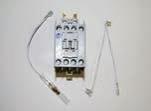
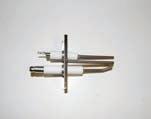
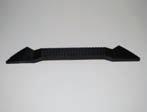
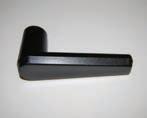
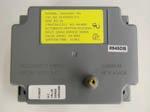

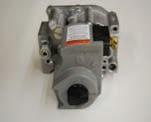
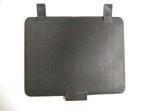


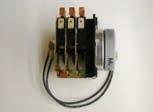
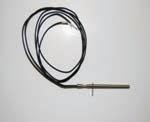

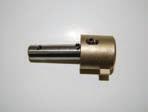
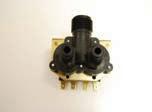


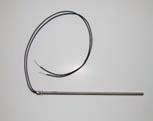
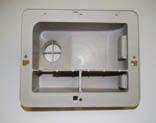


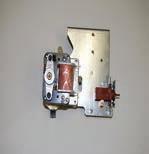



advanced control system can also help with a preventative maintenance program.





While it will not do the work of cleaning lint screens, wiping down the machines or testing the doors, some systems will alert owners of leaks in the drain and fill valves. The alerts will help eliminate wasted water and also reduce the time spent on these crucial aspects of preventative maintenance.
Some advanced control systems also feature service diagnostic troubleshooting so if there is a maintenance concern, an owner can run factory tests and quickly understand issues so they can be corrected.
In the event of an issue, Besaw suggests owners start simple and use the machine schematic, or road map, as a guide to the problem. “There are many controls that will display error codes indicating the problem area. Using the service manual to decipher these codes, and a multi-meter, can save the owner time and money.”
The most important thing an owner can do in regards to maintenance is promptly repair units that are out of order. Machines that
are “down” are not producing revenue and can cause customer frustration if not addressed in a timely manner.





“The last thing an owner should want a customer seeing while in the store is multiple ‘Out of Order’ signs,” Besaw shares. “Many repeat customers have their ‘favorite’ machines, and if they are broken, they may choose to go elsewhere.”
To avoid the chances of improper operating of machines, Besaw suggests posting signs in multiple languages throughout the store with visual aids illustrating how to insert payment and how to select cycles.
Whether an owner has one store or 10, using manufacturer and distributor resources can make setting up and following a preventative maintenance program a manageable task. The programs not only help an owner avoid bigger maintenance issues, but keep customers satisfied and reduce utility costs. ■
Kathryn Q. Rowen is the Huebsch® North American sales manager and may be reached at kathryn.rowen@alliancels.com. To learn more about Huebsch, visit www.huebsch.com/CoinOp101 or call 800-553-5120.
•
•
•
•
•
• Coin-Op 101: Laundromats in the Digital Age

• Cashless Laundries: Is the Future in the Cards?
• Is Your Coin Laundry’s Signage Effective?
• StatShot: March, First-Quarter Coin Laundry Sales Up for All Regions (WE)
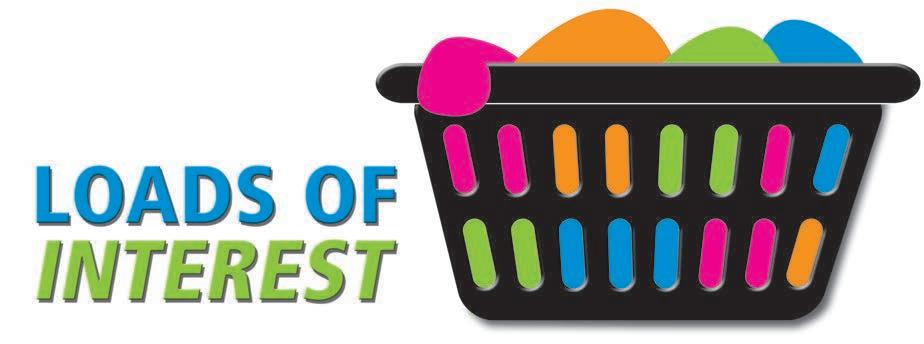
From AmericanLaundryNews.com:
• OPL 101: Benefits of Using Multi-Par Linen System
• Staying ‘On Par’ Presents Ongoing Challenge From AmericanDrycleaner.com:
• With New Charlotte Location, Tide Dry Cleaners Opens 20th Store
• Ten Things Your Lawyer May Not Tell You

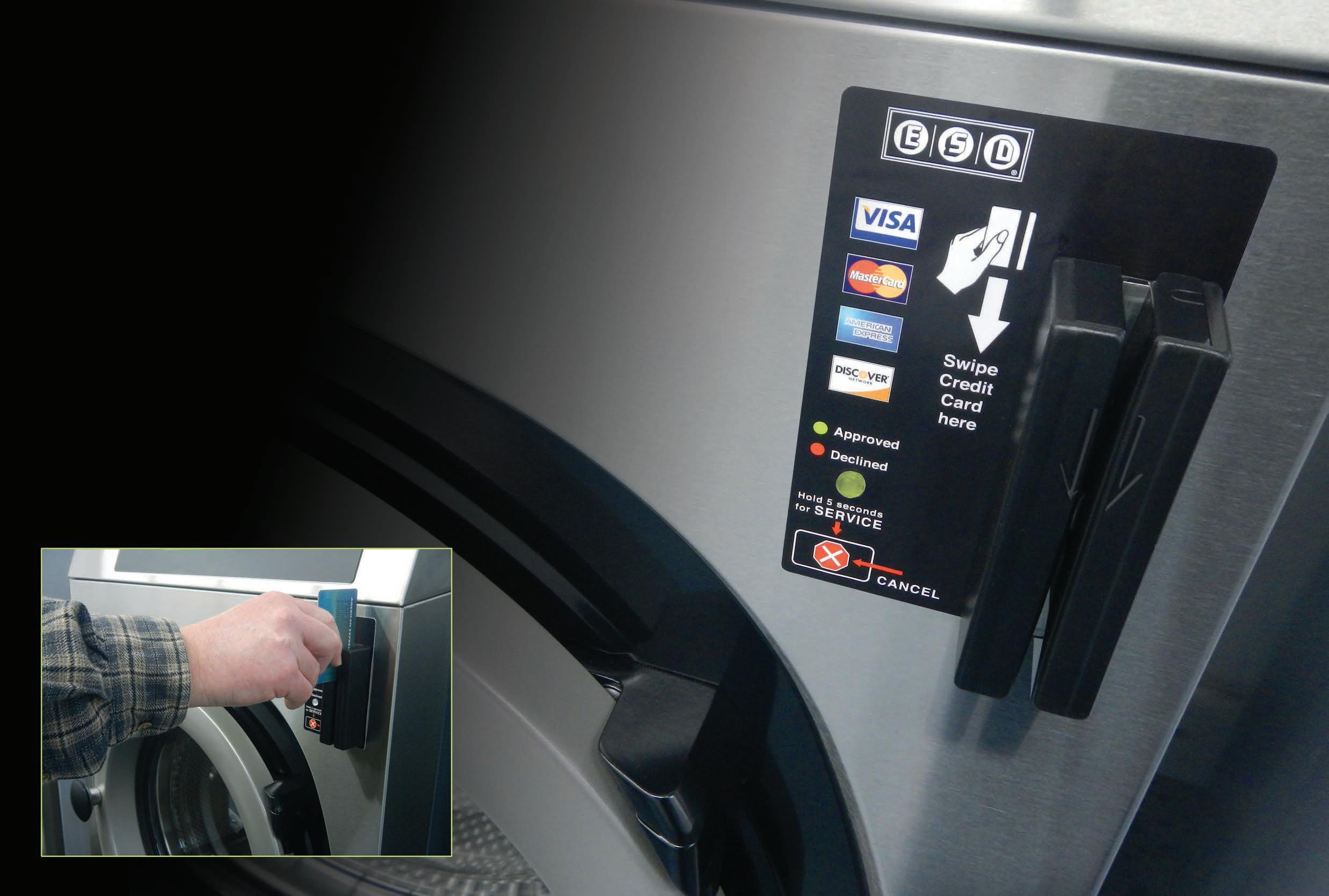


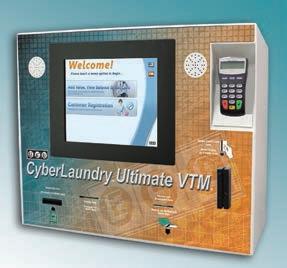




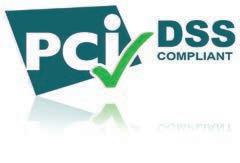


 By Hannah Miller
By Hannah Miller
Acombination of special people and advanced technology enables Barry Monroe to successfully run Wash World laundry in Charlotte, N.C., 90 miles from his Columbia, S.C., home.

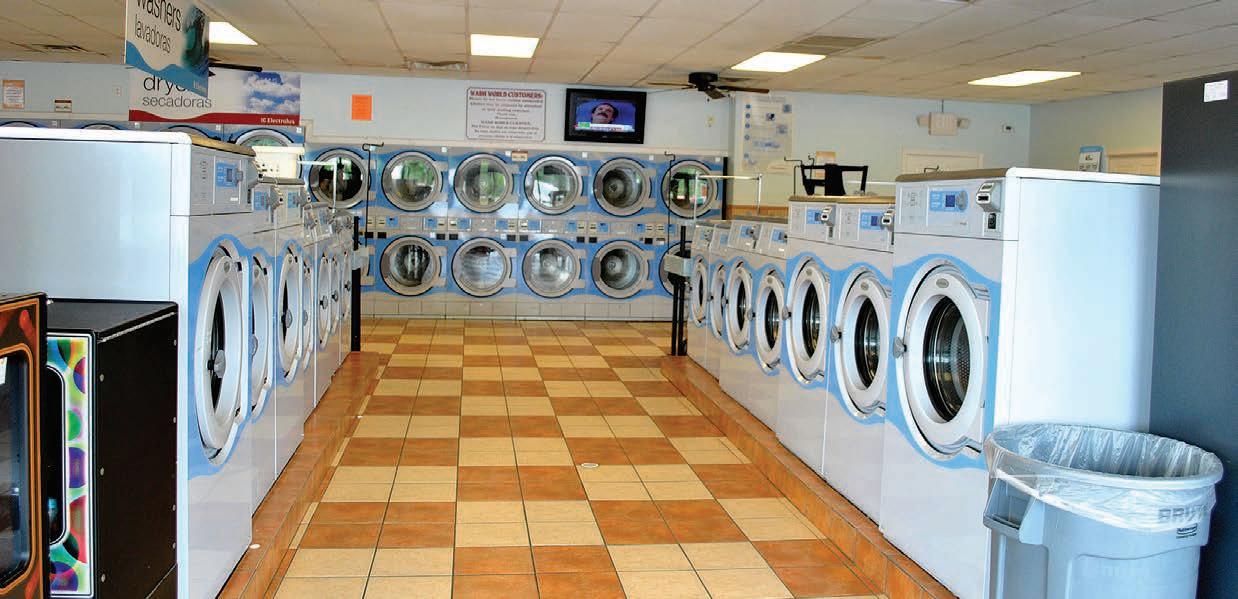
The people include laundry manager Gabriela (Gaby) Gonzalez, originally from Peru. Some 70% of Wash World’s customers are Hispanic, Monroe estimates, and Gonzalez communicates extremely well with them. “She’s very resourceful. She puts out any fire that comes up,” he says.
In fact, “I wouldn’t do it without her,” says Monroe, 55. “Next to my wife, she’s the best thing that ever happened to me.”
Holly, Monroe’s wife and laundry partner throughout most of his 38-year career, is another of those people making the longdistance Charlotte operation possible.
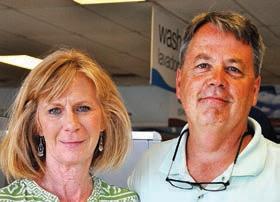
When he can’t make the weekly commute, she or one of their three sons, who have joined the business as they’ve grown up, will make it for him.
Barry Monroe and the sons—Joe, Ryan and Daniel Monroe—often use the commute as an opportunity to fix things.
Barry had his head in a washer the day he was interviewed, checking where a nail had gone through a hole in the tub and torn up the rubber beneath.
A replacement part was on hand. “Can you believe that? We were prepared!” he says. “We were ready.”
“Lucky,” Holly Monroe murmurs.
The technology that the Monroes depend on to keep them abreast of what’s happening in the Charlotte wash, their only North Carolina location, is a CCI (Card Concepts Inc.) automated wash card dispenser.

The system does a host of other things besides dispensing cards that customers use to run the 44 washers and 44 dryers, all Electrolux brand.

Among the washers, there are a dozen 20-pounders, a dozen 30-pounders, a dozen 45-pounders, a half-dozen 62-pounders and two 77-pounders. Dryers, most of them stacked, include 30 30-pounders, a dozen 45-pounders, and two 70-pounders.
The CCI system is linked electronically to each machine, and “I can remotely access what’s going on,” Barry says. He can check revenues for the day, the hour, even the year. He can add value to a card, do time-of-day pricing, reboot computers, and see which machines are running.
“It’s exciting when you dial in on a Sunday and they’re all booked,” he says.
Gonzalez, with a different access card, can use the system to shut down a machine
that’s having mechanical problems. That eliminates customer complaints created when they put money in a machine that isn’t working, Barry says.
Gonzalez can also use it to consolidate credit left on a customer’s wash card.
The Monroes own the small strip shopping center where the 3,600-square-foot laundry is located. A Hispanic meat market/grocery leases space on one side, and a Hispanic restaurant on the other.
Within the Laundromat, an 80-squarefoot section has been carved out at the front and leased to a business that offers phone cards and wire transfers of money to places like Mexico, Guatemala and Peru.
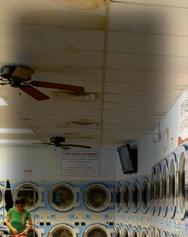

Charlotte’s Wash World is the only one of Monroe’s laundries to be located in
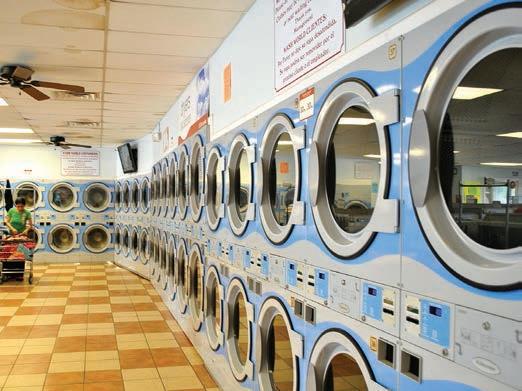
“A traffic light location and a major intersection.
It doesn’t get any better,” Barry says.
The shopping center parking lot exits onto two streets, and there are about 60 parking spaces.
The Monroes believe in keeping the laundry clean “and the machines working,” says Holly.
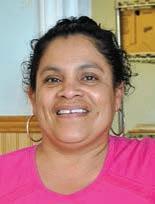
And they also believe in “bigger is better,” Barry says. Four of the six Wash Worlds in Columbia are, like the Charlotte location, a “superstore.”
ownership and distribution, is changing in other ways, too. The sons bring an interest in marketing through social media.
When Wash World opened four years
an area with a lot of Hispanic customers. Barry has six other Wash Worlds in the Columbia, S.C., area, but customers come from a mix of backgrounds, with a big military installation and several colleges nearby.
In Charlotte, he makes sure that familiar Hispanic soft drinks—coconut juice and mango- and guava-based drinks—are in the vending machine.
He stocks Hispanic brands of fabric softener (Sauvitel) and soap (Ariel). He would stock a Hispanic brand of bleach, but most of the customers recognize Clorox, he says.
The Laundromat and nearby businesses share customers, he says. “I think we all complement each other.”
But Holly thinks the laundry would do well even without the adjoining businesses.
Wash World is on a major street, Charlotte’s Central Avenue.
When you’re deciding where to take your load of laundry, he says, do you want to take it to the store with 18 washers? “It might be full.”
No, he says, you go where there are 44 washers, and while you’re there, “You go next door and get a nice meal.”
Barry Monroe has long owned ECL Equipment Co., distributing Wascomat and Electrolux products in North and South Carolina.
He used to concentrate on supplying coin-ops, but with the entry of his sons into the business, he has branched out into sales to hotels, motels, apartment complexes, jails, prisons, even high school athletic programs.
The family’s business, both coin-op
ago, Barry Monroe teamed with the Hispanic restaurant next door, then a pizza shop, in a live radio promotion. “He would do some type of free pizza and we would give out a free wash card.”
He still believes in rewards. The panel on the front of the card dispenser tells customers when they’ve earned enough cumulative points for a free wash. Called Wash to Win, it visually shows their purchases approaching the qualifying $120 mark.
Other bonuses can be programmed into the computer. For instance, customers who register their cards are awarded a $5 wash/ dry credit within a week of their birthday.

“It helps build that customer loyalty,” he says. “All those little things add up.” ■
Hannah Miller is a freelance writer who resides in Charlotte, N.C.





 By Fred S. Steingold
By Fred S. Steingold
During the course of running your coin laundry business, you may find yourself in need of legal services. Your lawyer may not automatically tell you everything you need to know about these services, and if you don’t ask questions, you may be in for some surprises.
Here are 10 things your lawyer may not tell you—unless you ask.
You’ve found some new space for your expanding laundry business. After stumbling through the dense verbiage in the landlord’s lease, you decide to have your lawyer review the lease before you sign. Smart move.

But what if your lawyer has never reviewed a commercial lease before? Will he or she volunteer that information? Maybe not.
Legal ethics don’t require a voluntary disclosure. They only require a lawyer to become competent in a legal matter before proceeding.
In theory, a lawyer can get up to speed by consulting with a colleague, reading professional books, and attending seminars.
But, given a choice between a novice and a lawyer who has checked out 50 commercial leases, wouldn’t you be more comfortable with the more experienced one? If so, find out how much work of this type your lawyer has done.
There are many law-related tasks you can do yourself—like getting a tax assessment reduced or suing in small claims court.
There are other things that can be accomplished by hiring non-lawyers who can work more effectively and charge less than a lawyer. For example, an accountant may be better and cheaper at sorting out a financial mess. A real estate broker may be better at negotiating a land purchase.

Some lawyers won’t tell you about less expensive options unless you ask.
When you’re paying a lawyer $250 or $300 an hour—or even more—you may be shocked to find yourself nickeled and dimed as well. But it happens.
Some lawyers bill for the faxes they send or receive, for the photocopies they produce, and for postage and long-distance charges. Don’t assume your lawyer will be absorbing these expenses as a part of doing business.
Get a clear understanding up front about whether you’ll be hit with these incidental costs.


Paralegals—also called “legal assistants”—play an important role in a modern law office. Rightfully so. They’re usually well trained and capable of handling many routine transactions.
But what if your lawyer is planning to let the paralegal do all the work? You may want to know.
For one thing, you’ll want to make sure the paralegal’s time is being billed at a substantially lower rate than the lawyer’s. In addition, you’ll want to make sure you’re


comfortable with the amount of the lawyer’s supervision—or lack of it—that the paralegal will be receiving.
You may also want to meet the paralegal so you can have an effective working relationship.
Terror can grip your heart when you call your lawyer to ask a follow-up question, only to be told, “I’m sorry. Ms. Jones is on a long trip to Asia and can’t be reached.” Reasonable access is a reasonable expectation, especially in today’s digital world. You’d like to know in advance if your lawyer will be out of touch for an extended period.
To avoid rude surprises, inquire about the lawyer’s travel plans, and who will be handling the lawyer’s clients in his or her absence. Ask to meet the back-up person, and make sure that he or she will be fully briefed about your legal situation.
If your chances of getting any real money in a lawsuit are somewhere between zip and zero, you’d like to know in advance— long before you sink thousands of dollars into a lawsuit.
Sure, you’d like to get even with the scoundrel who scammed your business, but it may cost you a bundle to duke it out in court—and you may still wind up empty-handed.
Ideally, your lawyer will give you a frank assessment of your odds of winning, your odds of collecting, and how much all of this will cost you. Sometimes the best advice is to put the matter behind you and forget
about suing.
Some lawyers, however, may not level with you at first—perhaps out of fear that they’ll rile you if they suggest that maybe you don’t have such a great case. To get a straight story, you may need to ask the lawyer for brutally honest answers.
A lawyer who enjoys drafting corporate documents may abhor appearing at zoning hearings. A lawyer who likes to litigate may not like to take a matter to mediation.
You need a lawyer with a zest for your type of legal work. Someone who finds a certain kind of work distasteful may just go through the motions—not comforting when you need someone to aggressively champion your legal position.
But lawyers may be reluctant to refer
Hall for a flat fee. If you don’t ask, you’ll never know.
9. “I BILL IN QUARTER-HOUR INCREMENTS.”
That five-minute phone call to your lawyer may cost you $75. Why? Because your $300-an-hour lawyer bills in increments of 15 minutes. That’s something you need to know and discuss in advance.
Billing is not a precise art, but increments of five or six minutes seem much more reasonable than quarter-hour segments.
To avoid getting burned, ask about the units the lawyer uses in billing. Maybe you’ll decide not to call the lawyer’s office quite as often.
10. “I STOPPED LEARNING THE DAY I LEFT LAW SCHOOL.”
Some states don’t require lawyers to
you to someone else. They worry that if they do, they may never see you again. You can tactfully raise the subject by asking, “Is this really your cup of tea? Do you like doing this type of work?”
If you detect something less than enthusiasm in the lawyer’s response, follow up with, “Who in town specializes in these matters?”
Most lawyers do most work for an hourly basis—but would be willing to do particular tasks for a flat fee. Trouble is, they may not volunteer this information. They worry that clients may take advantage of a flat fee by making endless demands on their time.

Still, they may be willing to draft a business document or attend a meeting at City
continue their education once they pass the bar—which means that a lazy lawyer may not be up-to-date on the latest legal changes.
A lawyer who ignores legal seminars or doesn’t read professional journals isn’t likely to brag about it. You may not find out until it’s too late that your lawyer was less than sharp on a crucial legal point.
Here’s where learning a lawyer’s reputation comes in handy. A lawyer who’s highly regarded by other lawyers in your community is probably doing his or her homework. ■
Fred S. Steingold practices law in Ann Arbor, Mich. He is the author of Legal Guide for Starting and Running a Small Business and The Employer’s Legal Handbook, published by Nolo.
Laundromat customers waiting for their laundry to finish have often found ways to pass the time thanks to the spare change in their pockets and the convenience and comfort of vending machines.
Snacks, beverages, laundry detergents, small toys and trinkets, and even video games have been at the disposal of laundry customers. But as the times and technology have changed, so, too, have customers’ vending needs.
American Coin-Op reached out to some vending experts, who dispensed a wealth of information on the state of the industry, the changes and challenges that it faces, and opportunities store owners can capitalize on to raise their vending game.
The National Automatic Merchandising Association (NAMA), the national trade association of the food and refreshment vending, coffee service and foodservice management industries, has been the leading voice of the vending industry since its inception in 1936.
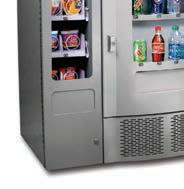
Roni Moore, its vice president of marketing and public relations, says the $42 billion industry is in a “renaissance.”
“It is undergoing a significant rebirth, marked by innovation in technology,









opportunities around providing ‘better for you’ products and new developments,” she says.
The “evolving” landscape of the industry ensures vending companies, like Freeport, Ill.-based Seaga Manufacturing, are on the constant pulse of industry trends, technology, and customer demands and behavior.
“As the public becomes more experienced with cashless payments and unattended sales, kiosks and vending machines, micro markets, vending operators and equipment manufacturers, like Seaga, need to keep evolving to meet that customer demand, and keep equipment out in the market that is going to sell through for our operators,” says Angela Olson, marketing manager for Seaga.
For Olson, Laundromats provide the ideal venue for vending machines.
Mark Gies, vice president of sales at Cicero, Ill.-based Vend-Rite Mfg., manufacturers of laundry soap dispensers and vending machines, agrees, adding that there will always be a necessity for the extra profit center in Laundromats.
“There’s certainly a need for it within a Laundromat, and depending upon the size of the Laundromat, it’s going to dictate the size of the soap machine,” says Gies, adding that the machine becomes an all-in-one stop for the end-user.
“When you go to a Laundromat, the convenience that you want to provide [is] the soap, a bleach, a softener and an additive,” he says, “so that [customers] don’t necessarily have to go outside of [your] Laundromat … to the grocery store across the street or down the block to buy that detergent.”
So what are the popular items customers are looking for in vending machines?



“Obviously the Coca-Cola’s of the world, and especially the Pepsi’s of the world are heavily entrenched in vending and are the most popular items sold out of vending machines because of their grand presence in that arena,” says Olson, who adds that brand loyalty in retailing is also reflected upon the vending industry.
“Packaging with … a vending machine is always key, so we always keep in very close touch with those industries and work handin-hand with them in developing the best way to present and market and sell their products.”
From his segment, Gies says he sees a trend toward concentrated, higher-efficiency soap products, but that laundry customers are not necessarily brand-specific when it comes to detergents.
“They’re in that Laundromat to do their
wash, so they’re going to buy whatever’s in that machine,” he says, adding that familiarity is what customers buy into.
“They’ve heard of All detergent, they’ve heard of Snuggle sheets, they’ve heard of Wisk, [so] as long as they’re somewhat familiar with the brand name, they’re going to buy it out of the vendor.”
As more and more customers rely on cashless payment methods in the retail realm, companies like Vend-Rite have had to follow suit and reflect the trend.
Gies explains that its large-capacity Vision Vendor not only answers the demands of customers wishing to pay with plastic, but also streamlines the inventory and vending sales process for operators.
“Our Vision Vendors [satisfy] the need of being able to sell … larger items out of a closed environment where you now have the ability to manage the sales of those items, and can actually identify, by product, how many items you sell on a monthly basis, and how much money was taken into the machine on a monthly basis,” he says.
Can laundry customers expect to see more cashless vending machines in the near future?
It all depends on the laundry owner, Gies says. “You’ve got a lot of laundry owners that are comfortable with using coins, and you [also] have laundry owners that are basically leaning toward new technology.”
Regardless of where the cashless trend is going, Gies highlighted Vend-Rite’s vending machines’ adaptability through conversion kits.
“Our machines have the ability to accept
two types of payment systems, so if you wanted, you can put a card reader onto a machine that has a [coin mechanism] on it.”
Though evolving payment technologies present “an enormous opportunity” for the vending industry, according to Moore, adapting to customers’ changing payment methods is a “worldwide challenge,” says Olson. Consumers and retailers alike are not only opting to go cashless, but are also exploring “plastic bills and different coin metal configurations.”
Because of this, operators must be “nimble” in doing business.
“They need to work with their customers and the technology available to them; I think they need to embrace it,” Olson

fresh so [your customers] don’t have any reason not to look and consider buying your products,” she says.
Vend-Rite is “staying consistent” with the laundry industry in order to provide end-users with items they need, Gies says.
“With Laundromats going from a topload industry to a front-load industry, from going from a 20-pound washer to [an] 80-pound washer … [customers] are not going to buy five to six boxes [of a singleuse product],” he says.
Though there will always be a need for single-use items, according to Gies, the company believes it has addressed the demands of customers looking to buy vend products for higher-capacity machines.
says. “They always have to have it in their [thought] bubble, and to work with their equipment supplier to implement these changes because they are definitely going to become the standard someday.”
And despite recent headlines about security flaws of cashless payment methods, Olson believes the “reward is much higher than the risk.”
Knowing your Laundromat’s location and customers is key when it comes to vending sales, according to Olson. “If you don’t have what [your customers] want, they’re going to hoof it down the street to the convenience store.”
Olson points to “basic ‘Vending 101.’”
“Keep your machines loaded [and] lit up nicely, maintained, and keep your products
“We’ve positioned ourselves, with the Vision Vendor, to take it into the next decade of being able to satisfy a laundry owner’s needs for concentrated products,” he says.
Moore believes the industry as a whole is “uniquely suited” to meet consumer needs because vending is a “24/7 business able to provide consumers what they want [and] when they want it.”
Business owners must refine their relationship with customers to meet this ondemand aspect, according to Olson.
“The interaction with both the customer and the machine owner will need to become more and more sophisticated so that the machine owner knows what the machine has sold … what needs to be restocked, [so] the customer can have a good experience when they step up to the machine to make a purchase.”
So, what will you do on vacation? The last time I went on vacation, I jogged the beach, went swimming, biked around the island, read several books, ate at a few good restaurants, and visited a Laundromat called Stop N’ Wash.
Yes, this was my itinerary during my month-long winter vacation in Freeport, Grand Bahama Island, Bahamas.
When I found the Laundromat, I went several times to see how business was, what was going on, and to get a sense of customer satisfaction. It wasn’t that I needed to use the Laundromat either. Our condo had laundry facilities down the corridor. It was just that I wanted to learn something. And on vacation, so should you.
Here’s what I learned. Freeport is the only city on Grand Bahama Island. The island has a population of 52,000, and more than 80% live in Freeport. There are two or three Laundromats in the city. I say two or three because businesses often close down and/or reopen. One never knows for sure if something is a going concern. The economy is extremely weak.
Unlike its sister island, Nassau, Grand Bahama Island hasn’t successfully integrated tourism into its economy. Possibly that’s because of the port authority, which is controlled by a Chinese consortium, The Hutchison Group, and tariffs raise prices dramatically. Possibly it’s the local politics, which seems to be stuck in rhetoric.
The island is plagued by failing condos, high hotel mortality, and crime. Everywhere you go, you see halfbuilt concrete-block structures alongside modern, ninestory hotels. It can be said that this beautiful island, with tropical weather all year long, just can’t seem to get its act together.
Against this backdrop is Stop N’ Wash, a seemingly successful Laundromat that’s been in business for seven years. Although small (only 1,200 square feet), and located in a small mall in the village of Bohemia—a slight distance away from the main business areas—the Laundromat continues to do brisk business. I visited
To read more Howard Scott columns, visit www.americancoinop.com

the shop on a Monday, Thursday evening, and Sunday morning. The facility has about 20 machines. It was always busy, with eight or 10 customers. Sunday morning particularly is a hubbub of activity.
I spoke to several customers whose comments are instructive:
“This place is the only one on the island that takes care of its machines. Everything works. If, occasionally, a machine is down, there is always an ‘out of order’ sign on it. And if necessary, the attendant will refund my money. I’ve never had any problems.”
“Man, this is where we go to have our clothes clean.”
“I like to come here. We live on a boat, and it’s always nice to find a hospitable place. The snack bar has very good, very cheap food.”
Yes, the snack bar is at one end of the facility. It features soft drinks, hot dogs, curry chicken, and snacks. Most Laundromat customers order something from the snack bar. The server doubles as the attendant. She solves Laundromat customer problems. She is empowered to give out money if money is lost in machines. So, in effect, there is an attendant on premises, because the snack bar is open most of the hours that the Laundromat is open.
When I found the Laundromat, I went several times to see how business was, what was going on, and to get a sense of customer satisfaction.
Despite the poorness of the island and the poorness of the people, prices are not cheap. A top-loader costs $1.50 for a wash. A dryer costs $1 for five minutes plus 25 cents for each additional minute. Nevertheless, as one customer says, “It makes cleaning clothes so much easier. Our house doesn’t have the water pressure to do laundry well.” Evidently, this is a common problem, which adds to the trade.
Another says, “Cleaning clothes used to be a big

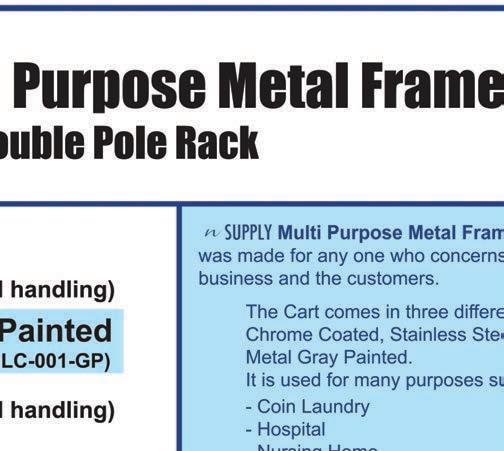


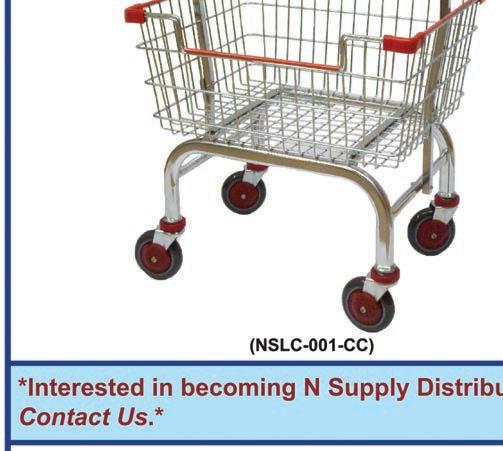


deal. Now it’s no big deal. Someone brings the clothes here every Sunday morning. We get it done right after church.”
Still another says, “I come from Holmes Rock, several miles away, but this is the only Laundromat whose machines work. Besides, I really like the beef jerky they serve here in the snack bar.”
Yet another patron offers her comments. “Yes, it’s expensive to clean our clothes, but food is expensive, too. At Solomon’s, we’re always spending more than we should. But, just as you have to eat, so you have to have clean clothes. So it’s a no-brainer.”
So what have we learned?
First, even in places with poor population bases, people use Laundromats to clean their clothes. Thus there’s no excuse why you can’t win your share of business in your market. The key is to make it effortless and stress-free for them to do the clothes. And give them something to do with their time. In this case, it’s having a snack.
Second, consider having a snack bar as part of your operation. If you have the room and if there isn’t a snack bar in the area, a manned snack bar might be just the inducement to get people to come. I don’t know why but I’ve never seen this done in any U.S.
Laundromat. It seems like an obvious answer to coverage. It’s simply expanding from food vending machines to a full-fledged manned snack bar.




Customers come in to do their laundry and wind up having lunch. Or they wind up having an evening snack. A second bonus is that the store is manned. The server acts as an attendant, and handles all problems or at least takes down information needed to solve problems.
Third, charge the price you must, which is the price where you make a profit at a given volume, and let the market sort it out. Don’t be afraid to charge what you need to charge. If you do a good job, customers will beat a path to you.

To rephrase, good service trumps low prices.
Next time you go on vacation, have a great time. But also search out the competition, and learn something. Take home a trick, practice or notion you can implement in your business that will improve your operation. ■
Howard Scott is a long-time business writer, small-business consultant, and author of four books.








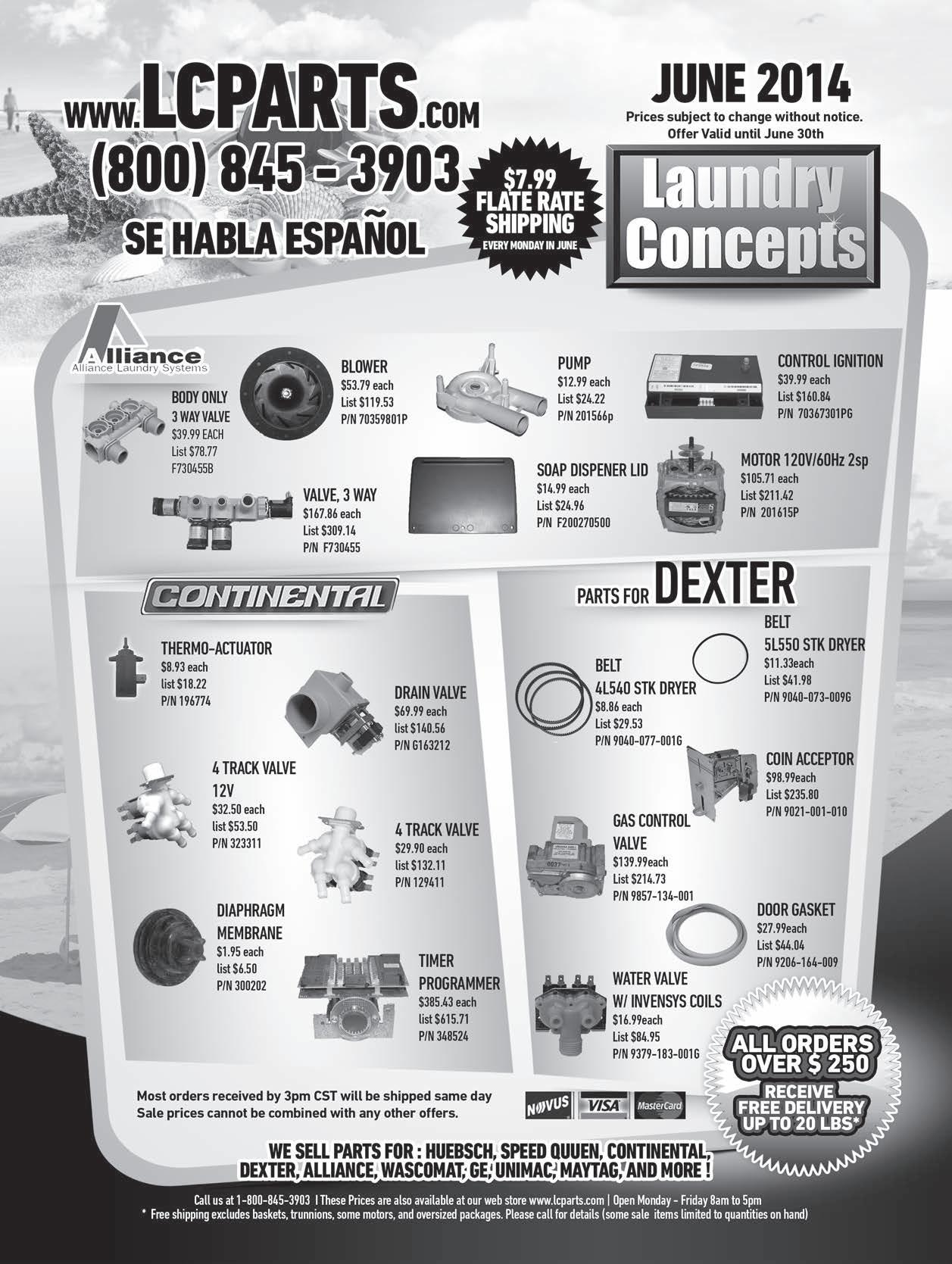
Mountain
Setomatic
HHC
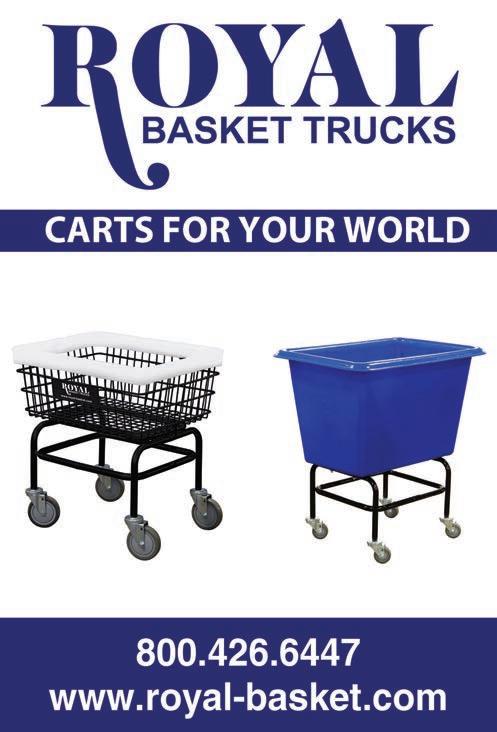


WASCO 185’s 220/1 & 220/3 $3,500
WASCO 184’s 220/1 & 220/3 $2,700
WASCO 125’s 220/1 & 220/3 $2,400
WASCO 124’s 220/1 & 220/3 $1,850
WASCO 74’s 110 v & 220/3 $ 975
WASCO 75’s 110 v & 220/3 $1,200
WASCO 620’s 110V $1,600
Our Parts Department has thousands of products on over an acre lot.
If we don’t have what you want, ask us, and we’ll find it for you.
From initial site inspections and recommendations to equipment purchase and installation, we are here to help with every aspect of your project.
We can help you with specifications, dimensions, illustrations of commercial and on-premise laundry equipment.
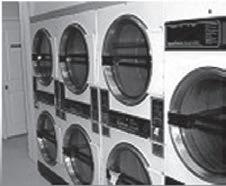
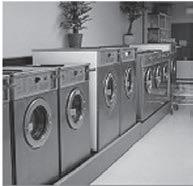

We are able to offer competitive rates and low, affordable monthly payments for financing coin laundry and laundromat facilities.
We have a coin laundry financing solution to meet the needs of new store owners, and veterans alike.

ACRES OF HARD TO FIND USED WASHER & DRYER PARTS WASHER & DRYER FRONT & SIDE PANELS ALL MAKES AND MODELS STARTING @ $50
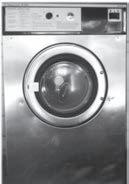

WASHER DOOR $35 & UP COMPLETE DRYER DOOR $35 & UP COMPLETE ANY WASHER TUB 18#, 35#, 50#, WITH NEW BEARINGS $175 & UP WITH EXCHANGE ALL DRYER BASKETS $75 & UP ESD CARD READERS $150 EA
EMERALD SERIES COMPUTER BOARDS $575 EA
LET US REFURBISH YOUR PANELS ~ FRESHLY PAINTED PANELS IN EITHER ALMOND OR WHITE ... $70 EA

Complete package for 1800 sq ft of not so used, Wascomat stainless washers and ADC dryers in Charlotte, NC for less than half of half price of new equipment. $49K. Call Charles 704-904-1464.

20 top loaders, 25 Maytag front loaders, 15 50lb Wascomat, 10 30lb Wascomatic, 15 18lb Wascomat, 5 50lb dryers, 7 35lb dryers, 36 double dryers, 2 boilers, 3 std coin changers, 30 laundry baskets, 1 32” flat screen TV, 2 vending machines, 3 roll tables, 4 folding tables, 3 sets of 4 chairs connected. Located in Detroit, Contact Bill Hall 313-590-0868.

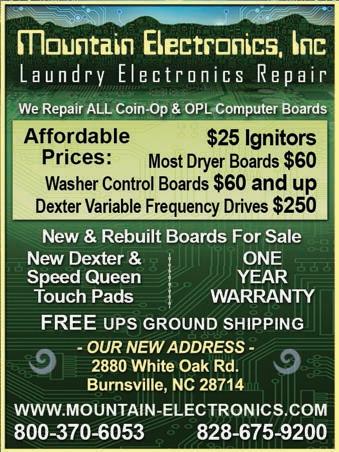




ESD CELEBRATES MILESTONE, ADDS KEY EQUIPMENT, HIRES SPERRY
ESD, a manufacturer of card systems for retail Laundromats and route operations, recently celebrated the installation of its 1 millionth card reader in the field, the company reports.
Other new ESD developments include the purchase of a sixth machine to manufacture the cards used in its systems, plus the hiring of a new regional salesman.
ESD, founded in 1969, was driven by a vision to design and manufacture a mechanical coin slide that would accept coins in a vertical position. As the new product was made available, industry acceptance propelled ESD into developing additional products and
DEXTER PRESENTS TOP SALES AWARDS TO WESTERN STATE DESIGN
Western State Design (WSD) was recently awarded top honors at Dexter Laundry’s annual meeting, receiving the “No. 1 in Dexter Sales Worldwide” award, and the President’s Award for Sales Excellence in 2013, the company reports.
This is the fifth consecutive year that WSD has received the award, the company adds.
“We’re truly honored to receive these two awards from Dexter and are proud of our staff and their commitment to provide energy-efficient Laundromats that serve their communities,” says Thomas Marks, vice president of WSD.
“The dedication to supply a quality, American-made product, and commitment to offering profitable business models to our clients, motivates our sales team,” adds General Manager Todd Hyrn.
expanding its markets into the related vending and amusement industries, the company says. It moved its headquarters and factory to Fort Washington, Pa., in 1990.
Today, ESD makes a comprehensive line of smart-card and magstripe-card devices that are used in vended laundries and multi-housing locations throughout the world.
ESD purchased its first machine to mill cards, implant chips into them and then print serial codes in 1998. The company has continued to purchase additional machines from various countries, including equipment that encodes and imprints serial numbers on magstripe cards. It has just added a sixth machine, this one built in France.
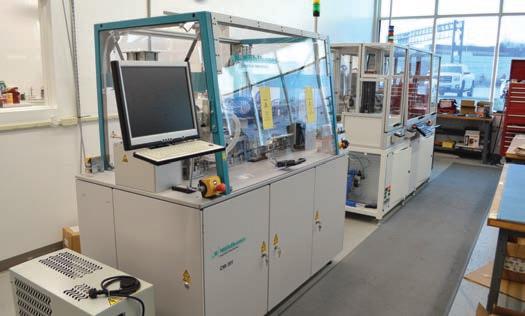
“We are now capable of producing 5,500 smart cards per hour and 12,000 magstripe cards per hour,” says ESD President Amy Gitlin. “We have made this investment to better serve the needs of our customers.”
New to the ESD staff is Mark Sperry, a regional salesman hired to cover the U.S. Southeast. A Chapel Hill, N.C., resident, Sperry will cover territory that includes West Virginia, and Virginia to Florida. The Clarion University graduate and 10-year industry veteran has experience in route operations as well as retail Laundromats.

HOUSTON OPERATOR IS HUEBSCH ‘STORE OWNER OF THE QUARTER’ Huebsch has named Joseph Koyithara, owner of the Houston (Texas) West Airport Washateria, as its first Store Owner of the Quarter. The company plans to recognize four owners from across the country each year that excel in areas such as entrepreneurism, technology adoption, innovation, and customer and community service.
After Koyithara faced challenges while working with his then distributor to remodel two of his stores, he turned to Huebsch and Houston-based distributor Gulf States Laundry Machinery for a fresh start, Huebsch says.
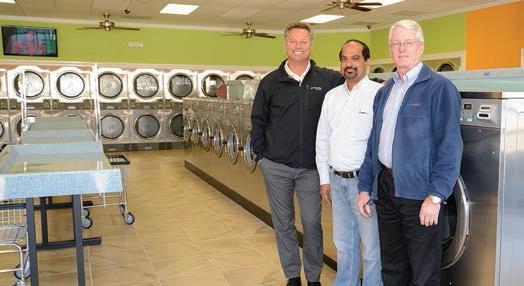
“Joseph’s ability to see the value of the laundry business, even after a few bumps in the road, is a true testament to his entrepreneurial spirit and drive to succeed as an owner,” says Kathryn Q. Rowen, Huebsch North American sales manager.
Houston West Airport Washateria is located in a roughly 12,000-square-foot strip mall featuring a convenience store, gas station and liquor store, all owned by Koyithara and his partners.
The 4,000-square-foot Laundromat has 32 Huebsch washerextractors, ranging in capacity from 20 to 80 pounds and featuring the company’s Galaxy and eBoost technology, Huebsch says.





